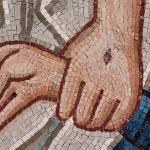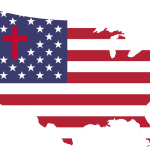For over half a century, Gallup has been asking Americans whether they think the influence of religion is increasing or decreasing in the U.S., posing the intriguing question of what the results actually signify. For starters, it’s worth bearing in mind that Western civilization is grounded in the belief that once upon a time, God was in his heaven and people went to church regularly. So at any given time, more Americans are likely to think the influence of religion is in decline than the other way around.
That said, what accounts for the rather striking ups and downs in the chart? In its latest release, Gallup emphasizes that these do not reflect changes in personal religiosity — and I’m inclined to agree, up to a point. Here’s the story I’d tell about the people’s perception of religion’s influence.
The decline from 1958 through 1972 has to do with the perceived changes in cultural norms associated with “the Sixties.” Call it the “sex, drugs and rock ‘n’ roll” effect. The 1970s suggested push-back, or at least a range of religious responses to the changes, from New Age communalism to increased activity of evangelicals in the public square. The election of Southern Baptist Jimmy Carter in 1976 — what Time called the Year of the Evangelical — pumped up the popular sense that the influence of religion was on the rise.
Read the rest here















